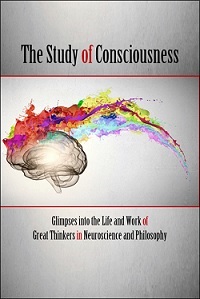|
TRANSLATE THIS ARTICLE
Integral World: Exploring Theories of Everything
An independent forum for a critical discussion of the integral philosophy of Ken Wilber
 David Christopher Lane, Ph.D.
Professor of Philosophy, Mt. San Antonio College Lecturer in Religious Studies, California State University, Long Beach Author of Exposing Cults: When the Skeptical Mind Confronts the Mystical (New York and London: Garland Publishers, 1994) and The Radhasoami Tradition: A Critical History of Guru Succession (New York and London: Garland Publishers, 1992). David Christopher Lane, Ph.D.
Professor of Philosophy, Mt. San Antonio College Lecturer in Religious Studies, California State University, Long Beach Author of Exposing Cults: When the Skeptical Mind Confronts the Mystical (New York and London: Garland Publishers, 1994) and The Radhasoami Tradition: A Critical History of Guru Succession (New York and London: Garland Publishers, 1992).
THE STUDY OF CONSCIOUSNESS
Glimpses into the Life and Work of Great Thinkers in Neuroscience and Philosophy
Chalmers |
Changeux |
Chomsky |
Churchland, Paul |
Churchland, Patricia |
Crick |
Dennett |
Edelman |
Flanagan |
Humphrey |
Huxley |
Koch |
Leary |
Lilly |
McKenna |
Nagel |
Tononi
ALDOUS HUXLEYDenise MotusAmong the many dystopian novels written throughout the 20th century, Brave New World is a classic that sits atop with other literary works such as George Orwell's 1984 and Ray Bradbury's Fahrenheit 451. Who exactly was the mind that imagined a futuristic society in which citizens are genetically engineered to feel no pain, psychologically manipulated, and routinely drugged to uphold an authoritarian ruling order? His name was Aldous Huxley. 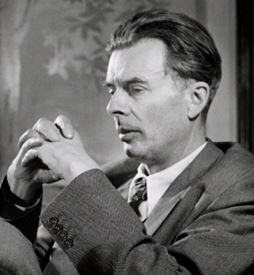 Aldous Leonard Huxley Aldous Leonard Huxley was an English literary writer born on July 26, 1894 in Godalming, Surrey, England. One could say that he already had a penchant for literature and science ever since he was born into a prominent intellectual family, the Huxley family, who were known for their contributions to the sciences, arts, and literature. The Huxley's rise to prominence began with Thomas Henry Huxley, Aldous's grandfather, who was a biologist and anthropologist. He became known as “Darwin's Bulldog” for his unyielding support of Charles Darwin's theory of evolution. Aldous Huxley was different; he was nobody's dog and explored life to his heart's content. In his early twenties, Huxley became an established writer and social satirist. Brave New World ironically started out as a parody of fellow science fiction writer and colleague H.G. Wells' utopian novel Men Like Gods and several more like it. Huxley tried to marry science and literature. He believed that it is crucial to be intellectual in different bodies of knowledge. The compelling writer used concepts of science as themes and settings for his novels while he used literature to critique the anomalies of scientific advancements. With his profound familial ties with science and his dream of becoming a doctor, how did young Aldous become a writer and philosopher instead? At the age of sixteen, Huxley suffered from a disease that temporarily blinded his eyes. He had plans to enter the medical profession but found that his condition would negatively impact any future in medicine. In Balliol College, Oxford, he took up English literature instead. He loved reading so much that he resorted to using a large magnifying glass and sometimes others would read aloud to him. His eye problems also made him ineligible to serve in the military during World War I. Although, if he had gone off to war, he could have been one of the nearly 700,000 British soldiers who lost their lives between 1914 and 1918. After graduating from college and becoming a relatively established writer, he briefly taught French at Eton College where he had Eric Blair (who would later use the pen name George Orwell) as one of his students. Blair would then go on to write a classic of his own namely 1984—a dystopian novel about a middle-aged man living in an oppressive totalitarian rule led by Big Brother. Huxley sprinkled his novels with how he viewed society, such as in Crome Yellow (1921), Point Counter Point (1928), Brave New World (1932), and Eyeless in Gaza (1936). For instance, the factory setting in which genetically engineered babies were produced was inspired from the assembly lines in Henry Ford's manufacturing plant. While he did not necessarily condemn it, he was highly critical of the capitalist American culture he witnessed. Whereas his works of fiction defined his writing career, his essays contained the crux of his philosophy. While not as revered as his earlier novels, his essay collections which include The Doors of Perception (1954) and Heaven and Hell (1956) showcased his unfiltered insights on such topics as drugs, religion, psychology, war, science, and technology. In The Doors of Perception, Huxley takes the reader with him through his psychedelic experiences. Native Americans regarded a certain cactus, called peyote, as a gift from the divine spirits thus using the plant for religious ceremonies. Mescaline is the principal active psychedelic agent of peyote. After reading up on psychiatrist Humphrey Osmond's academic paper on mescaline, Huxley eagerly called him up to submit himself as a guinea pig to test out the psychedelic. On the day of the experiment, he ingested four-tenths of a gram of mescaline dissolved in water. His account of the experiences while under the influence was recorded on a dictating machine allowing himself to refresh his memory of what had happened. Reflecting back on his experience, Huxley suggested that each person is capable of remembering and perceiving everything that is happening. However, the brain and the nervous system protect the person from being overwhelmed by shutting out most of what is going on in the surroundings and funnels in only what may be practically useful. What will be left would then be the consciousness that keeps only biological survival possible. When taking mescaline, the intellect remains intact and the perception is greatly enhanced but the will takes a turn for the worse. Levelheaded individuals typically would repeatedly think, and sometimes overthink, of ways on how to go about to do something especially in situations that could profoundly affect their circumstance. Mescaline takers do not see any good reason to care that much for such trivial things. Huxley introduced the concept of “Mind at Large” to describe reaching into the consciousness once the filters that the brain and the ego provide are expelled. He declared that “the urge to transcend self-conscious selfhood is a principal appetite of the soul.” When individuals fail to transcend self-consciousness whether it is by means of worship, good deeds, or meditation, then they are more inclined to resort to chemical substances such as alcohol and drugs. Ideally, religion should fulfill self-transcendence for everyone but since this is not the case, anyone should be given the opportunity to partake in activities (i.e. taking psychedelics) that could help them get to the Mind at Large. The mescaline experiment with Osmond was only the start of his appreciation for hallucinogenic drugs. He continued to study and share his experiences with them for the next decade. On November 22, 1963, he died in his Los Angeles home on the same day that his fellow English writer C.S. Lewis (author of The Chronicles of Narnia) died. Their deaths may have been overshadowed by the assassination of President John F. Kennedy just hours later. Still, Huxley managed to do something remarkable on his deathbed. He asked second wife, Laura Archera Huxley, to administer a dose of LSD to him and so she did. Despite having partial blindness, Aldous Huxley truly had a colorful life. As life escaped his frail, diseased body and LSD ran rampant though his system, he probably saw colors so bright and so intense it took him back to his first glimpse of the Mind at Large. Further Reading1. The Doors of Perception: Heaven and Hell 2. Island, Harper Perennial Modern Classics; 1 edition (October 20, 2009) 3. The Perennial Philosophy, Harper Perennial Modern Classics; 6/28/09 edition (2009) 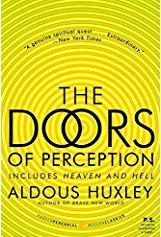 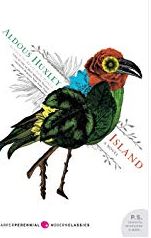 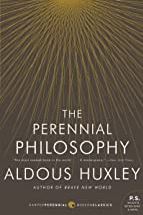 Selected Excerpts
|
